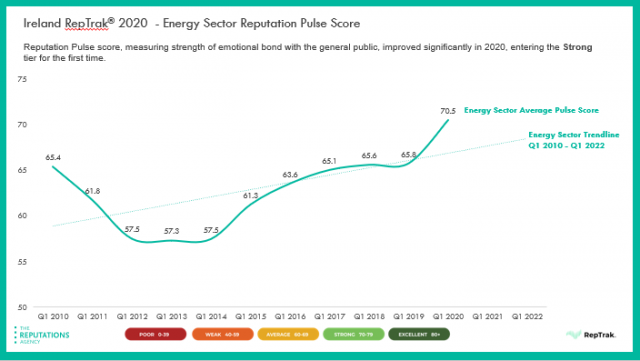REthink Energy: Building Popular Support for the Energy Transition: The Battle For Hearts And Minds
Author: Luke O'Callaghan-White
5 Takeaways:
- Research presented by Dr Christina Demski showed that people strongly support energy system change and are willing to help finance this transformation.
- Citizens are willing to accept costs to fund the transition, Dr Demski said, but they identify governments and the energy sector as most responsible for financing the energy transition.
- Dr Demski explained that public support for energy system change is influenced by perceptions of distributive justice and transparency. For citizens, she argued, it is important that they can trust the government to ensure that the distribution of costs is fair and that there is effective regulation of the energy sector with clear evidence of the distinction between government and the energy industry.
- Niamh Boyle highlighted the importance of a company’s reputation because it drives supportive behaviour amongst important stakeholders and this support allows the company to achieve stronger business results. In Ireland, the energy sector enjoys a strong reputation.
- The COVID-19 pandemic and economic recession, Ms Boyle noted, threaten this reputation and the support that comes with it. How the energy sector behaves towards society during this pandemic and recession could form its reputational legacy for years to come.
Summary
The third lecture in the 2020 ESB/IIEA Series: REthink Energy examined the important roles that public trust and reputation play in the transformation of the energy system to net zero emissions.
Paddy Hayes, Managing Director of ESB Networks opened proceedings. He remarked that by 2030, 70% of electricity in Ireland will be generated from renewable sources and meeting this target will require engagement with a broad coalition of supply chains, customers and prosumers. Mr Hayes noted that trust and public opinion are significantly more relevant today as energy systems decarbonise. He briefly described three innovation projects that ESB Networks is involved in and highlighted the importance of consciously incorporating the perspective of the local community in the innovation process.
Dr Christina Demski began her address by arguing that there is broad support for energy system change. She added that there is public willingness to help finance this transformation if energy costs are fairly distributed. Drawing on research carried out in the UK, Dr Demski showed that people care more about ‘energy justice’ than merely ‘least cost’ when they consider the energy transition and are willing to consider a 9-13% increase in their energy bills to finance this transformation. Her research showed that people identify governments and the energy sector as the key actors responsible for financing the energy transition.
Dr Demski highlighted that many UK citizens question the lack of transparency from the energy industry and government as well as the distribution of responsibility and costs. She highlighted that many citizens in the UK consider the regulation to be inadequate because of a perceived close connection between government and energy companies.
In conclusion, Dr Demski said that if government and utilities address these issues of ‘justice’ and ‘transparency’, they are likely to increase public support for the transition to a low-carbon future. A change in public attitudes and behaviour is essential in order to meet the transition to a low carbon future.
Turning to Ireland, Ms Boyle spoke about the importance of reputational capital in the Irish energy sector. She noted that the Irish energy sector enjoys a strong reputation, citing research from the ‘Ireland RepTrak Study’ showing how the reputation of the sector has increased over the past six years. She said that a company’s reputation is important because it drives supportive behaviour which leads to stronger business results. The COVID-19 pandemic and economic recession, however, could threaten this reputational capital and the support that comes with it. In conclusion, she remarked that a positive engagement with the public during the pandemic could ensure its reputational legacy for years to come.
Key Slide

This slide charts the results of the RepTrak ‘Pulse Score’ of the energy sector over the last ten years. The ‘Pulse Score’ measures the emotional bond between the sector and the public, based on esteem, admiration, trust, and good feeling. In the first quarter of 2020, the reputation of the energy sector in Ireland reached 70.5 and entered the ‘Strong’ tier for the first time.
